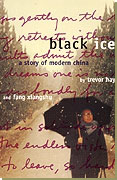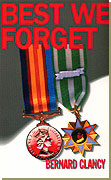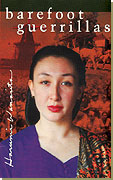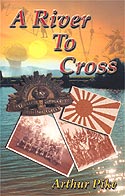Criado – A Story of East Timor
Sunday, August 5th, 2007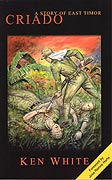
This book brings to life for many Australians, the close connection between Australia and East Timor.
In 1941 – 42, Archie Campbell was a lieutenant in the “Sparrow Force” the 300 men of the 2/2nd Independent Company in a 14-month campaign of ambushes and hit-and-run tactics which effectively pinned down more than 15,000 Japanese troops in East Timor.
This book recounts the bloodless Australian landing in Portuguese East Timor, military actions against the Japanese, and eventual evacuation to Darwin. Central to Campbell’s experience is the ambush and execution of a section from his platoon, shortly after the Japanese landing in Dili.
In 1973, Archie returned to East Timor to meet Barana, the East Timorese man who, as a 12-year-old boy, helped and protected him during the campaign. Each Timorese boy who helped a commando and guarded him while he slept, was called that commando’s criado.
Ken White accompanied Archie in the 1973 journey to East Timor to find Barana. He has used excerpts from Archie’s own diary to tell the heart-warming story of their first meeting after 30 years.
Historical background on the centuries of Portuguese rule, the Japanese occupation and the more recent Indonesian invasion and incorporation add to the value of this book as another chapter in the Australia-East Timor story.
November 2002, 176pp
Paperback, 216 x 138 mm
ISBN: 0 9578735 4 9
Non-fiction category: War & revolution
1st Edition; RRP $aud 21-95
ISBN-13: 9780957873544
The Author,Ken White, is a senior journalist with wide experience in Northern Australia and the neighbouring region. He worked in Darwin during the 1970s and 1980s, covering some of the most significant events in recent Australian history.
While in Darwin, Ken covered the events of the Indonesian invasion and annexation of East Timor, establishing close links with some of the main participants in East Timor’s resistance. It was during this time that he joined Archie Campbell and Don Turton, on their journey to East Timor.
Ken’s second book published by Indra, True Stories of the Top End, includes previously unpublished material on significant events in the Northern Territory.
Following his time in Darwin, Ken moved to Adelaide, and now lives in Melbourne.
